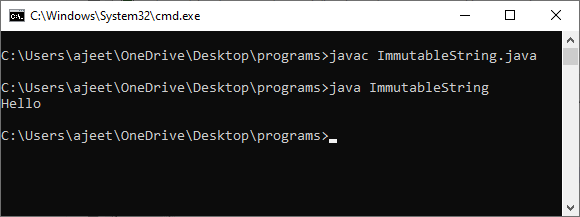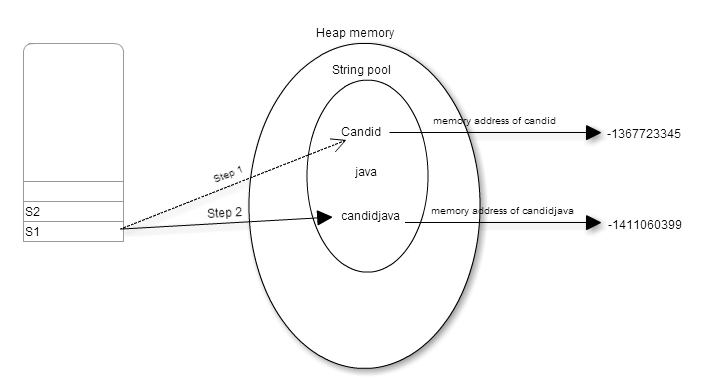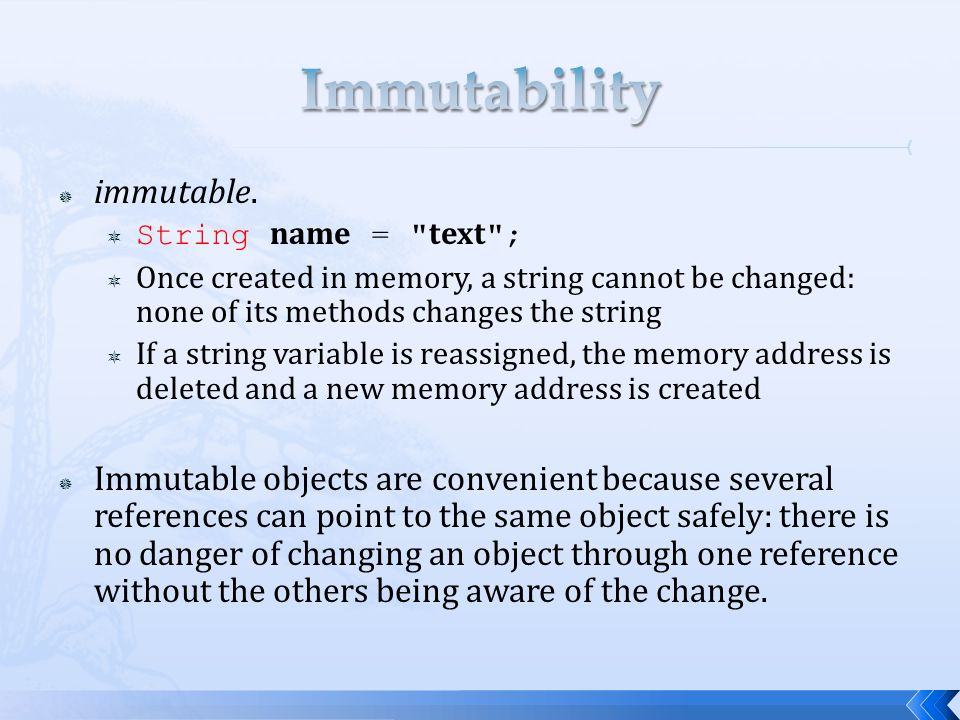What Is Immutable Strings and How It Works
In the realm of programs, understanding the idea of unalterable strings is critical for developing durable and secure applications. Unalterable strings refer to strings that can not be modified after they are produced, ensuring data honesty and predictability within the code.
The Basics of Immutable Strings
Immutable strings, as a basic concept in shows, are personality sequences that can not be altered when they are created. This implies that as soon as a string is designated a value, that worth can not be modified. In languages like Python and Java, strings are unalterable things, resulting in different effects in regards to memory monitoring and data integrity.
One of the key advantages of immutable strings is that they supply a complacency in data adjustment. Given that the content of an immutable string can not be modified, it makes certain that the initial data remains undamaged, lowering the risk of unintentional adjustments throughout program implementation (Why are strings immutable in Java?). This home likewise simplifies debugging processes, as designers can trust that when a string is defined, its value will not be unintentionally changed
Additionally, immutable strings help with efficient memory use. When a brand-new string is produced based on an existing one, as opposed to modifying the initial string, the brand-new value is saved independently. This strategy improves efficiency by decreasing memory fragmentation and simplifying memory allocation processes. Generally, comprehending the basics of unalterable strings is vital for understanding programs concepts and maximizing code effectiveness.
Advantages of Immutable Strings
Building upon the security and effectiveness benefits of unalterable strings, their advantages encompass improving code reliability and simplifying concurrent programming jobs. By being unalterable, strings can not be changed after creation, which removes the risk of unexpected modifications in the data they keep. This integral immutability ensures that once a string is created, its worth continues to be continuous throughout the program's execution, decreasing the possibilities of pests triggered by unforeseen alterations.
In addition, immutable strings add to code integrity by making it less complicated to reason about the state of a program. Considering that strings can not be transformed, programmers can rely on that a string will certainly always hold the very same worth, simplifying debugging and maintenance initiatives. This predictability results in a lot more reliable and secure codebases.

Execution in Programs Languages
Within various programming languages, the consolidation of immutable strings is an essential element that impacts how data is managed and adjusted within code frameworks. The implementation of immutable strings differs throughout different programming languages, with each language offering its own mechanisms to support this principle.

On the other hand, languages like C and C++ do not have integrated support for immutable strings. Developers in these languages need to manually apply immutability by applying guidelines within their code to avoid straight alterations to string objects.
Best Practices for Collaborating With Immutable Strings
When dealing with unalterable strings in programs languages like Java and Python, sticking to finest methods guarantees effective and safe information manipulation. One of the vital finest techniques is to use StringBuilder or StringBuffer rather than directly manipulating strings, especially when dealing with comprehensive concatenation operations. These classes provide mutable choices for string adjustment, assisting to this hyperlink avoid unneeded memory allotments and enhancing efficiency.
In addition, when working with delicate data such as passwords or API secrets, it is crucial to avoid storing them as plain message in immutable strings. Making use of secure storage mechanisms like char selections or specialized libraries for dealing with sensitive information helps mitigate security risks connected with unalterable strings.
Real-world Applications and Instances
Discovering practical executions of immutable strings in different markets exposes their significant effect on information honesty and system dependability. In the health care field, immutable strings play an essential function in guaranteeing the safety and security and confidentiality of client data. By preventing unapproved adjustments to delicate info such as medical documents and prescriptions, immutable strings help keep conformity with strict privacy regulations like HIPAA.
Financial institutions likewise gain from the immutable nature of strings to enhance the security of customer data and transaction documents. Unalterable strings help avoid fraudulence and unauthorized changes to economic details, offering a robust protection versus cyber threats and making certain the trust fund and confidence of clients.

Final Thought
To conclude, unalterable strings are taken care of and unchangeable series of characters that offer benefits such as thread security and improved performance in shows. They are executed in different programming languages to guarantee information integrity and security. Ideal techniques for dealing with unalterable strings consist of avoiding straight adjustments and using methods that return brand-new string things. Real-world applications of unalterable strings include information security, caching, and string manipulation jobs.
Unalterable strings refer to strings that can not be modified after they are produced, making sure data stability and predictability within the code. When a new string is developed based on an existing one, rather than changing the original string, the brand-new worth is kept individually.In languages like Java and Python, strings are unalterable by default, implying that as soon as a string things is produced, its worth can not be altered - Why are strings immutable in Java?. Ideal practices for working with immutable strings consist of staying clear of straight modifications and using approaches that return new string items. Real-world applications of unalterable strings consist of data encryption, caching, and string adjustment tasks